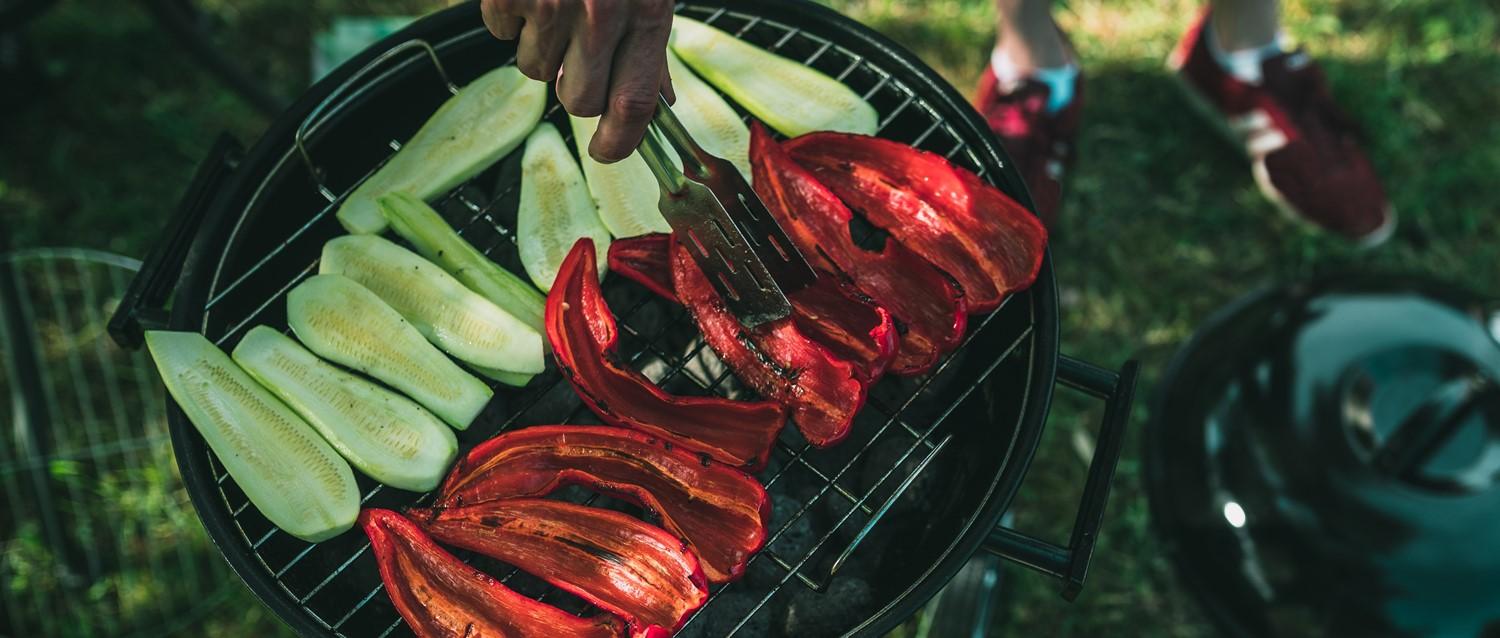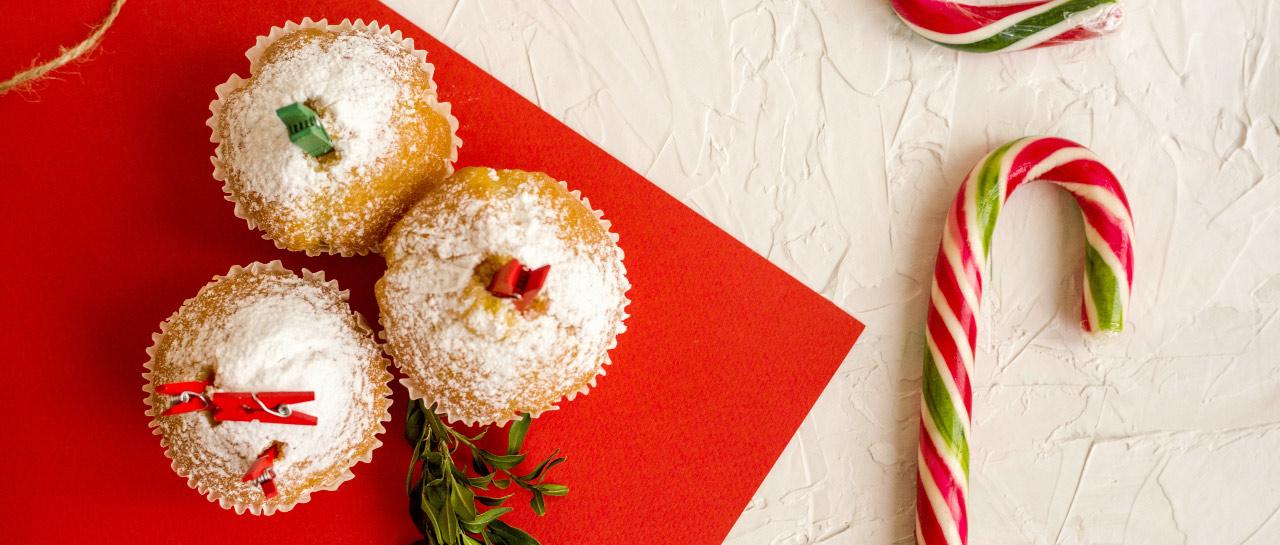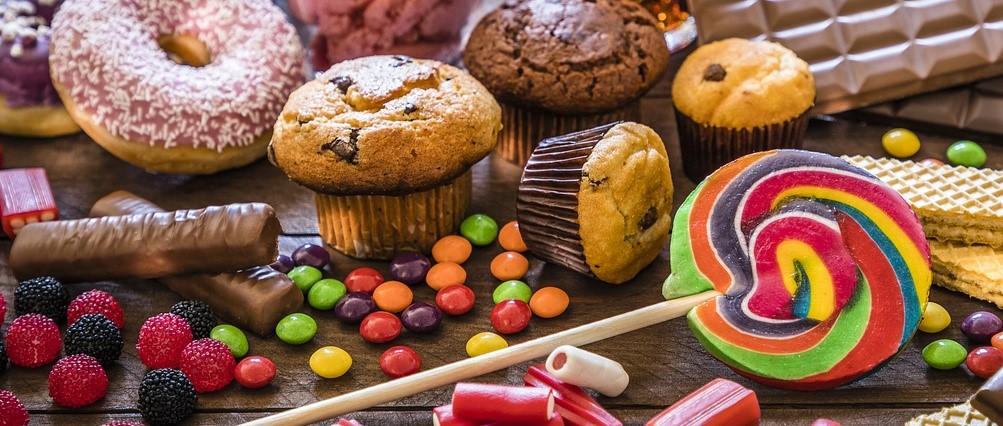
How to have a healthier barbecue
Peer reviewed by Dr Sarah Jarvis MBE, FRCGPLast updated by Abi MillarLast updated 19 Jul 2019
Meets Patient’s editorial guidelines
- DownloadDownload
- Share
- Language
- Discussion
With its unbroken stretch of sunny days, this has truly been a barbecue summer. How better to spend a hot weekend than in a friend's back garden, burgers sizzling on the grill and a jug of Pimms at the ready?
In this article:
Unsurprisingly, the barbecue market is booming. All this is well and good if you're looking for free licence to indulge (and barbecues are not a time to be abstemious). However, if you're concerned about eating healthily, a barbecue may require a bit more forward planning.
"Unfortunately, many of us are stuck in a rut when it comes to choosing our BBQ foods, opting for sausages, burgers and white baps with cheese slices as our staple items," says nutritionist Rose Constantine Smith. "These foods make for a high-fat, low-nutrient meal. But it does not have to be this way."
Continue reading below
The nutritional pitfalls
True enough, many barbecue staples are high in saturated fat and salt. Pork sausages, for instance, are legally required to contain 42% pork - but 30% of that can be fat, and 25% gristle. And though premium sausages and burgers have a higher meat content, that doesn't mean they necessarily have a better nutritional profile.
"A delicious and healthy way to enjoy barbecue season is to reduce or cut out the meat and dairy," says Simon Winch, Veganuary CEO. "There are vegan meat substitutes on the market that are pretty much indistinguishable from meat, but without the cholesterol. Products like the Beyond Burger are delicious, and better for the planet too. As well as burgers, sausages and even vegan bacon, so many of the sides we know and love are vegan anyway - like guacamole, summer salads, coleslaw with dairy-free mayo, sweet potato fries or griddled vegetables. Vegan barbecues can be awesome!"
But even if you lay off the meat, that doesn't let you off the hook. When you factor in coleslaw, garlic bread, creamy salad dressings and salty marinades, you may be surpassing your fat and salt recommendations without realising it. This is particularly concerning if you have a cardiovascular condition like high blood pressure.
"It might feel healthier because you're eating it in the fresh air, but barbecue food can add significant amounts of salt and saturated fat to your diet," says Victoria Allen, senior dietician at the British Heart Foundation. "Over time, eating too much can raise your blood pressure and LDL, or 'bad', cholesterol levels."
On top of this, people who eat a diet heavy in processed meat appear to have a higher risk of cancer - although the evidence that lean red meat carries the same risk is limited. This doesn't mean you need to avoid that sausage bap, but it does mean that applying some moderation - and ideally switching to leaner meat products - is generally a good idea.
"There's strong evidence that eating a healthy diet can reduce the risk of cancer," says Clare Hyde, a spokesperson for Cancer Research UK. "This includes cutting down on red and processed meat and high-calorie foods, and eating plenty of fruits and vegetables and foods high in fibre. A few summer barbecues won't make a noticeable impact on your cancer risk, but by making small everyday swaps and sticking to them over time, you'll be helping to cut your risk of cancer."
What to swap
What can be done, then, to make your barbecue healthier? As Constantine Smith explains, much of it comes down to judicious food swaps.
"You can swap red meats for leaner, lower saturated fat options like chicken or fish, and be more inventive with your sides," she says. "Swap your white bap for veggie-packed salads, and your white pasta for lentil salads, and add roasted summer vegetables. These will add valuable fibre, a nutrient many of us are lacking, as well as vital vitamins and minerals."
She adds that it's important to monitor levels of mayonnaise and ketchup, which can sneak hidden fat and sugar on to your plate. One idea is to make your own tomato salsa, which counts as one of your 'five-a-day' as well as being chock-full of antioxidants.
"Remember you still want to aim for a balanced plate. Often people can get excited at barbecues and end up eating a lot more meat than normal," she says. "Try to incorporate more vegetable-based barbecue options and stick to the recommended plate balance: one quarter as protein (red meat, poultry or fish); one quarter as carbohydrate (wholemeal bap, grain salads, wholewheat pasta); and half of your plate as vegetables."
On top of this, it's wise to watch your alcohol consumption. As afternoon turns into evening and free-poured measures become more generous, many of us can end up drinking more than we meant to. Hyde recommends alternating alcoholic drinks with soft drinks, while Constantine Smith suggests diluting your Pimms with extra lemonade, or even making a mocktail.
"There are some great alcohol-free options on the market, including beers, wine and gin, so there are no excuses - you can easily swap between and no one will even know!" she says.
Continue reading below
Cool the heat
One final tip is to avoid burning your meat. Not only will it taste better this way (nobody wants to eat food that looks like charcoal) but you'll also be minimising the risk of some rather unpleasant chemical reactions.
When meat is grilled at high temperatures, or for a long period of time, a reaction in the food creates heterocyclic amines (HCAs). Meanwhile, fat dripping from the meat creates smoke containing polycyclic aromatic hydrocarbons (PACs). According to the US National Cancer Institute, high exposure to both these chemicals may increase cancer risk, although no link has been established definitively.
There is no need to worry unduly - in the animal studies that have shown such a link, exposure levels are thousands of times higher than you'd get from a barbecue. However, if you prefer to err on the side of caution you may prefer to turn your meat regularly and serve it up before it's blackened.
"Keep an eye on your food and make sure you take it off the heat if it starts to catch," says Constantine Smith. "If they aren't quite cooked but are catching on the outside, pop them in the oven to finish them off."
Of course, barbecues are a time to eat, drink and be merry - which means worrying too much about nutrition may seem counter to the spirit of the occasion. However, with a few simple guidelines in place, there's no reason why your afternoon can't be as healthy as it is indulgent.
Patient picks for Healthy eating

Diet and nutrition
How to help your kids eat healthily over Christmas
Christmas is a time when many of us relax the rules about food. But when it comes to our children's health, how much is too much - and where should we draw the line?
by Gillian Harvey

Diet and nutrition
Why too much sugar is bad for children
It’s no secret that sugar isn’t good for us and contributes to a range of health problems, from type 2 diabetes to heart disease. Despite this, research shows children eat way too much of the sweet stuff - and it’s putting their health at risk1.
by Lydia Smith
Continue reading below
Article history
The information on this page is peer reviewed by qualified clinicians.
19 Jul 2019 | Latest version

Ask, share, connect.
Browse discussions, ask questions, and share experiences across hundreds of health topics.

Feeling unwell?
Assess your symptoms online for free
Sign up to the Patient newsletter
Your weekly dose of clear, trustworthy health advice - written to help you feel informed, confident and in control.
By subscribing you accept our Privacy Policy. You can unsubscribe at any time. We never sell your data.